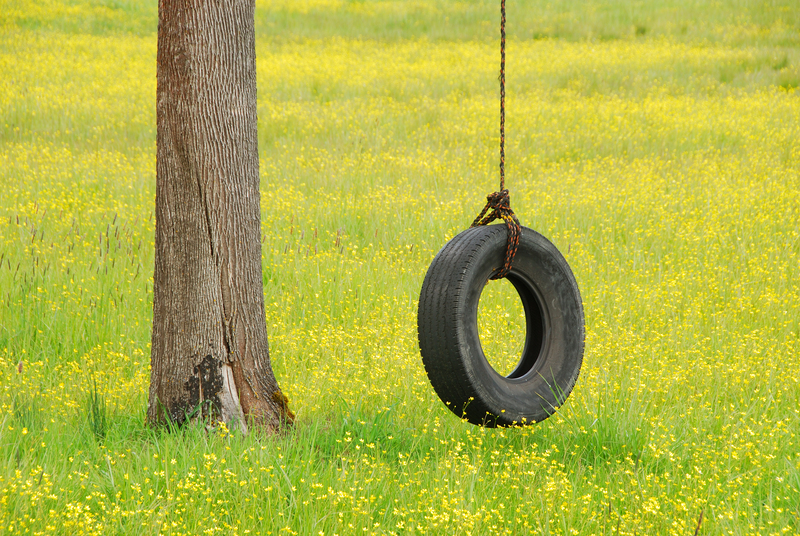Understanding Hard Rubbish Disposal
Posted on 05/06/2025
Understanding Hard Rubbish Disposal
Disposing of hard rubbish, sometimes referred to as bulky waste, is a significant challenge faced by many households and municipalities. Hard rubbish encompasses large items that cannot be easily disposed of through regular waste collection services. This article will provide an in-depth understanding of hard rubbish disposal, including the types of items it includes, the environmental impact, and methods for proper disposal.
What is Hard Rubbish?
Hard rubbish comprises items that are too large or heavy to be included in regular household waste or recycling bins. These items often include furniture, large appliances, mattresses, tires, and construction debris. Because these items are bulky, they require special handling and equipment for disposal.

Types of Hard Rubbish
An array of objects fall under the category of hard rubbish. Some common examples include:
1. **Furniture**: Couches, chairs, tables, and beds are typical hard rubbish items.
2. **Large Appliances**: Refrigerators, washing machines, ovens, and air conditioners.
3. **Building Materials**: This includes timber, bricks, tiles, and concrete.
4. **Batteries and Electronics**: Items like TVs, computers, and mobile phones.
5. **Garden Waste**: Large branches, tree stumps, and other oversized garden debris.
The Environmental Impact of Improper Hard Rubbish Disposal
Improper disposal of hard rubbish can have severe environmental consequences. When left inappropriately in landfills or dumped illegally, these items can lead to several issues:
1. **Pollution**: Hazardous materials within some hard rubbish, such as chemicals in appliances and electronics, can seep into the soil and waterways, causing significant harm to ecosystems and human health.
2. **Space Consumption**: Large items take up vast amounts of space in landfills, contributing to rapidly filling landfill sites.
3. **Resource Wastage**: Many hard rubbish items contain recyclable materials. Improper disposal fails to reclaim these resources, leading to unnecessary waste.
Methods for Proper Hard Rubbish Disposal
Several methods can help in the proper disposal of hard rubbish:
1. **Council Clean-Up Services**: Many local councils offer special hard rubbish collection services. Residents can book a collection, and the council will pick up the items on a scheduled day. This service ensures that the disposal is handled correctly and often includes recycling efforts.
2. **Waste Transfer Stations**: These facilities accept large and bulky items. Residents can transport their hard rubbish to these stations, where trained personnel handle proper sorting and disposal.
3. **Skip Bins**: Hiring a skip bin is an excellent option for disposing of significant amounts of hard rubbish. These large bins are delivered to the residence, and once filled, the company collects and processes the waste appropriately.
4. **Recycling Centers**: Some hard rubbish, particularly metal objects and electronic waste, can be taken directly to recycling centers. These centers disassemble items and extract valuable materials for reuse.
Recycling and Reusing Hard Rubbish
Recycling and repurposing hard rubbish is an environmentally responsible practice that can significantly reduce waste. Many items categorized as hard rubbish contain materials that can be recycled:
1. **Metals**: Items like old appliances and bicycles are often made of valuable metals that can be melted down and reused.
2. **Timber**: Scrap wood from furniture or construction projects can be repurposed for new building materials or chipped for mulch.
3. **Electronics**: E-waste contains metals and components that can be recovered and reused in manufacturing new electronics.
4. **Plastic and Foam**: Items like mattresses and certain types of furniture contain plastics and foams that can be recycled and used in new products.
Residents are encouraged to seek out recycling options before considering disposal. Many charities and community organizations accept donations of unwanted furniture and appliances, providing an opportunity for reuse and extending the life of these items.
The Role of Government and Policy in Hard Rubbish Disposal
Government policy plays a crucial role in managing hard rubbish disposal effectively:
1. **Regulations**: Governments enforce regulations on how hard rubbish should be handled. These regulations ensure that waste is managed in a way that minimizes environmental impact.
2. **Incentives**: Providing incentives for recycling and proper disposal encourages residents and businesses to follow best practices. This could include subsidized recycling programs or tax benefits for using environmentally-friendly disposal methods.
3. **Public Education**: Informing the public about the importance of proper disposal and available services is essential. Government campaigns and educational programs can raise awareness and drive changes in behavior.

Challenges and Innovations in Hard Rubbish Disposal
Despite existing measures, hard rubbish disposal faces several challenges:
1. **Illegal Dumping**: Some individuals resort to illegal dumping, leading to significant environmental and aesthetic issues.
2. **Resource Limitations**: Municipalities sometimes lack the resources to manage large-scale hard rubbish collections, leading to inconsistencies in service availability.
3. **Technological Constraints**: Recycling hard rubbish requires advanced technology to disassemble and repurpose materials efficiently.
Innovations in waste management technology and strategies continue to emerge:
1. **Smart Waste Management Systems**: These systems use IoT devices and data analytics to optimize collection routes and schedules, improving efficiency in hard rubbish collection.
2. **Advanced Recycling Technologies**: New methods for breaking down and recycling complex materials found in hard rubbish are being developed, increasing the potential for resource recovery.
3. **Community Programs**: Collaborative community programs that involve residents can help manage hard rubbish more effectively, promoting local solutions to waste challenges.
Conclusion
Understanding hard rubbish disposal is essential for maintaining a clean and sustainable environment. Proper disposal methods, including council services, recycling centers, and innovative waste management technologies, provide ways to handle bulky waste responsibly. Public awareness and government policies are crucial in shaping effective waste management strategies. By focusing on recycling, repurposing, and educating the community, we can mitigate the environmental impact of hard rubbish and move towards a more sustainable future.
Latest Posts
Eco-Friendly Tips for Reducing Office Waste

